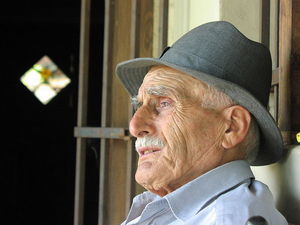My friend has but a few days left on this earth, he also has sundowners syndrome, making the ultimate bad situation even worse. Sundowners syndrome is common among patients suffering with dementia or Alzheimer’s, and true to the condition’s name, the symptoms manifest at or near sundown each evening.
Symptoms of Sundowners Syndrome
An Alzheimer’s patient with sundowners syndrome will become agitated, irritable and confused each evening and start lashing out at their caregivers, nurses or anyone else who happens to be around. The sundowning episodes may be verbal attacks from the patient or the episodes can become violent, with the patient physically attacking those within reach, or both can occur. My dying friend displays both types of symptom simultaneously, he spews out vile, mean words while he is hitting and kicking those around his bed. The strength of a person in midst of a sundowning episode is remarkable, it takes eight adults to restrain my friend so that can be sedated with medication then tied with restraints to his hospital bed. The language he uses and the physical violence are not something that was characteristic of him when he was thinking clearly, prior to the onset of Alzheimer’s.
It’s unclear if sundowners syndrome is a sleep disorder or a mood disorder, and the exact cause is not known. A sundowning episode can begin after the last meal of the day and continue for hours, sometimes lasting throughout the night until the sun rises the following morning.
Treatment for Sundowners Syndrome
There is no cure for ‘sundowning’ as it’s sometimes called and the only treatment for a person in the throes of a sundowning episode is sedation and/or physical restraints.
If the Alzheimer’s patient is mobile and active, steps can be taken each day prior to the symptoms manifesting in the evening to lessen the severity of and possibly avoid altogether a sundowning episode. Beginning in the early afternoon, engage the patient in calm, quiet activities. Provide the patient with a space free from all distractions and people so they can sit alone for a little while and process the information of the day in their own way, this seems to lessen the late-day confusion that often precedes a sundowning episode.
As caregiver to someone suffering from sundowners syndrome, know they are not themselves during an episode and have no control over what they are saying or doing. Also know the patient is quite strong and can hurt you and themselves, physical restraints are sometimes the only option to protect the patient and caregivers.
